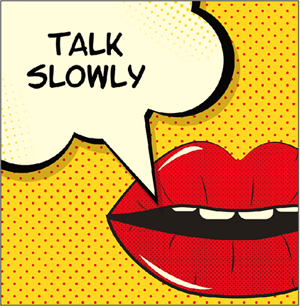
You’re not alone. That’s one reason many people shy away from media interviews. They don’t want anything to go wrong.
You can’t avoid errors. But you can do several things to improve the chances that the story will be accurate. I’ll share them all, and 47 more on a wide variety of publicity and self-promotion topics, when I host the free webinar “52 Solid Gold Publicity Nuggets to Make Self-promotion Easier” from 4 to 5:30 p.m. Eastern Time tomorrow—Thursday, April 14.
You’ll learn about how to pitch story ideas, how to write and use press releases, “extras” you can offer journalists and bloggers, publicity tips for authors and speakers, how to promote your expertise, free tools that will help you spread the word about your business, and lots more.
UPDATE: Watch the video replay here.
Here are five ways to be proactive during media interviews:
- Talk s-l-o-w-l-y.
This is the very best way to help the reporter write your comments exactly the way you said them. - Spell your name phonetically.
“My last name is spelled “S as in Sam, T as in Thomas, E as in Edward…” On the phone, especially a mobile phone, an S can sound like an F, and a D can sound like a T. - Ask if the reporter would like to “fact check” the story with you after it’s written but before it’s published.
That means reporters would call you and double-check any facts they might be unsure of. You can also ask if they’d read your direct quotes back to you. Not all reporters will agree to this. If they do, you don’t have the right to demand they change the quote if that’s what you said but you don’t like the way it sounds. - If important facts, data and other information about the topic of the interview are in a press release, offer it to the reporter.
It’s one more tool journalists can use to double-check facts. - If you suspect the interviewer is confused about a complicated topic, it’s OK to ask if they understand.
Rather than take your chances that they’ll get it right, you can ask, “Can you repeat to me, in your own words, what I just said? I want to make sure I’m explaining it clearly and that I’m not confusing you. This is a complicated topic.”
If you like these tips, you’ll LOVE tomorrow’s free training. I’m excerpting one valuable tip from each of my 52 special reports, and I’ll be making a killer offer at the end for anyone who needs more help with publicity and loves a bargain.
This session will be fast-paced, sort of like a bobsled run. And lots of fun.
I’m leaving time at the end for questions, too. Hope you can make it!